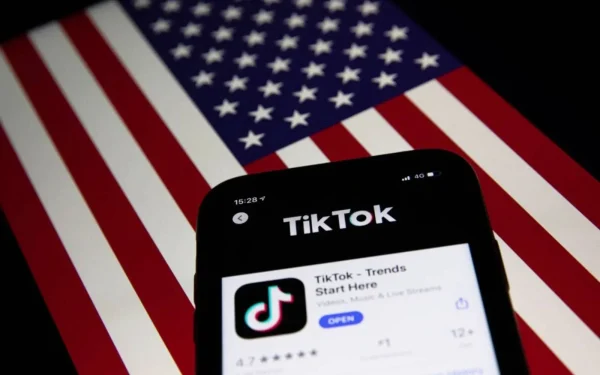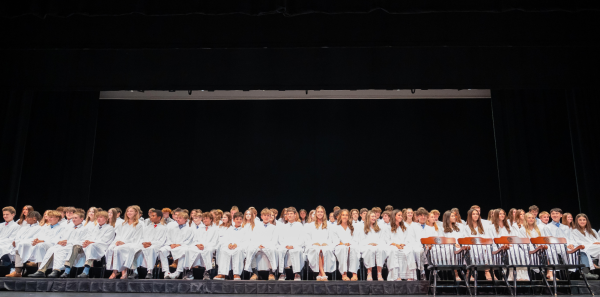More Than Justice at Stake in George Floyd Murder Trial
Riots, looting, fire, and protests. These events, which took place all over the country during the summer of 2020, were provoked by the killing of George Floyd. Floyd was a 46-year-old African-American man who was killed on May 25, 2020, by Caucasian police officer Derek Chauvin in Minneapolis. The officer is now on trial for second-degree murder and is trying to get the charges reduced to manslaughter. According to nbcnews.com, after a grocery store clerk called the police because he suspected Floyd had used a counterfeit $20 bill, Chauvin and several other officers arrived on the scene, handcuffed Floyd, and in doing so, Chauvin knelt on Floyd’s neck for nearly nine minutes. Floyd complained about not being able to breathe before losing consciousness and eventually dying.
Chauvin and the other three officers on the scene – Tou Thao, Thomas Kiernan Lane, and Alexander Kueng – were fired the day after Floyd’s death, and those other officers will stand trial this summer for aiding and abetting.
Despite Floyd’s death, some believe the multiple drugs found in his system may have caused him to act erratically and eventually led to his death. According to bbc.com, one of the officer’s body cams picked up Chauvin telling a bystander, “We had to control this guy because he’s a sizable guy. It looks like he’s probably on something.”
Floyd did have drugs in his system, and also had heart issues. As a result, Chauvin’s defense team believes heart conditions documented in Floyd’s autopsy combined with the drugs “acted to further compromise an already compromised heart.”
According to the BBC, “Mr. Floyd had ingested drugs at the time of his arrest in an effort to conceal them from the police.”
Some students believe that is what caused his death.
“George Floyd was resisting arrest and was on heavy drugs,” said seventh-grader Drew Palmer. If the cops didn’t kill him, the drugs would have.”
However, according to the same article, three separate medical examiners found the cause of death to be a homicide. In addition, testimonies were given by bystanders which include three high schoolers, a young girl, an MMA fighter, Floyd’s girlfriend, two firefighters, and his brother. The majority of witnesses proclaimed that the killing of Floyd was unjust and cruel.
Some students agree.
“I think that it was a mess and that he is guilty,” said seventh-grader Gavin Venoff. “He killed a man when he was saying he could not breathe, and I think the verdict will be guilty.”

Chauvin’s trial began on March 29 of this year and is expected to take at least a month. The events of this major trial will most likely have two possible outcomes. If Chauvin is proven innocent, then the Black Lives Matter (BLM) protests may start back up and there may be more rioting and violence against police, not just in Minneapolis, but perhaps nationwide. However, if the officer is proven guilty, it may be a small victory for those who believe there is systemic racism inherent in America’s police forces.
Seventh grader RJ Pierman, however, is not one of those people.
“I don’t think there is racism in the police force, and if there is, then a couple of racist cops should not take the place of the majority,” he said.
The riots that took place this summer across the country followed shortly after Floyd’s killing. While there were peaceful protests, there were cities in which property was burned and stores were looted.
Tensions are running even higher due to the recent killing of Daunte Wright, another African-American man who was shot and killed by a white female officer during a traffic stop due to expired tags on April 14. This occurred in the Minneapolis suburb of Brooklyn Center just 19 miles away from where Derek Chauvin’s trial is taking place.
According to apnews.com, there was a warrant for Wright’s arrest after he failed “to appear in court on charges that he fled from officers and possessed a gun without a permit during an encounter with Minneapolis police in June.” Wright’s shooting was ruled an accident by the city’s police department as the officer, 26-year veteran Kim Potter, meant to use her taser on Wright, but shot him instead. Potter subsequently retired and is facing second-degree murder charges.
This incident puts an even bigger spotlight on Chauvin’s trial and has resulted in more protests against police brutality in and around Minneapolis.
Chauvin’s trial is estimated to last about four weeks with back-and-forth arguments from each side. It’s up to the jury and judge to decide the ending of the trial which, no matter what the outcome, may have a lasting impact on the future of America.




